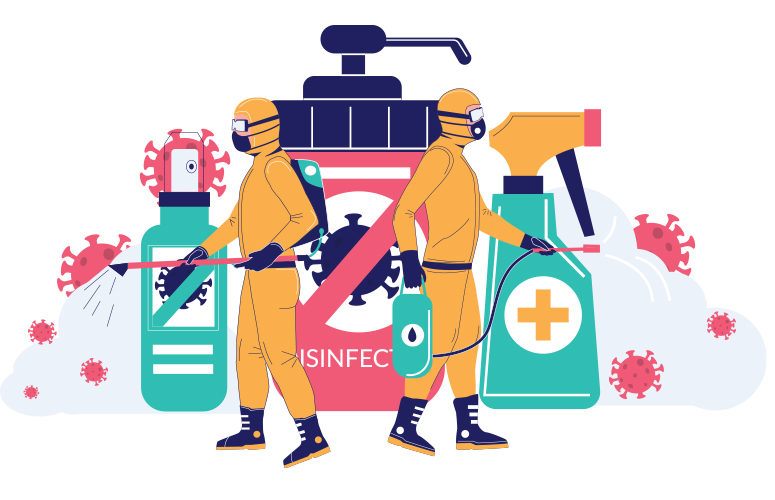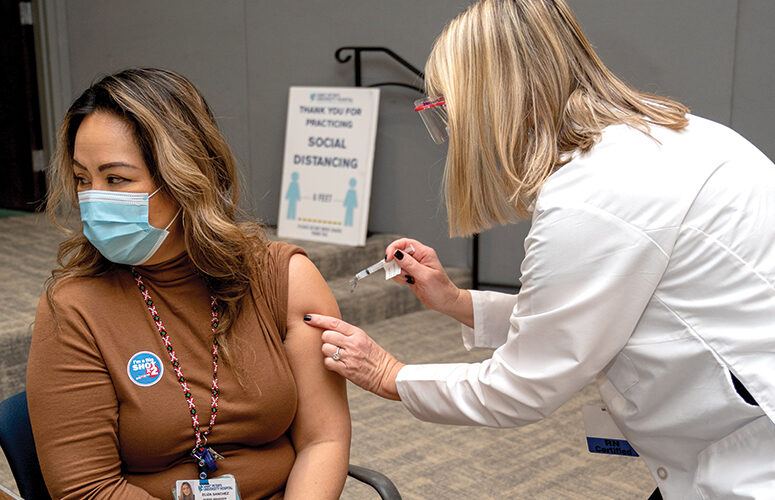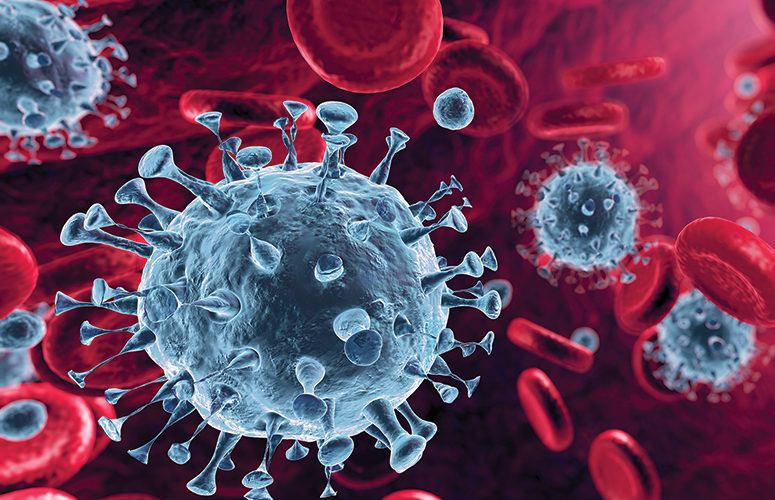
Disinfecting the Workplace During COVID-19
Cleaning companies have shifted their focus to help keep your employees and customers safe.
By Jim Pytell, Assistant Editor On Sep 9, 2020The coronavirus pandemic has forced all businesses to adjust their operations in a variety of ways in order to maintain a proper level of health and safety for their employees and customers. Not only does this “new normal” include government mandated mitigation requirements such as wearing face coverings and practicing social distancing, but it also requires business owners to completely reassess the regular cleaning routines at their companies.
While many employees have been directed to work from home for the foreseeable future, in the event that someone needs to visit the office, or for the many businesses that are able to open and serve customers during the pandemic such as outdoor dining at restaurants and shopping at retail stores, for example, giving employees and customers the confidence that your place of business is properly disinfected during this pandemic is vital.
Additionally, cleaning companies themselves have had to significantly beef up, and in some cases shift their focus, to thorough disinfection according to the standards that the Centers for Disease Control and Prevention (CDC) have laid out.
A New Threat Requiring a Heightened Focus
Robert Rivadeneira, president and CEO of Moonachie-based York Building Services, says that in the early stages of the pandemic, he started receiving all sorts of questions from customers about whether his professional cleaning service could help businesses properly disinfect their workspace to keep employees and customers safe.
“It really was on the back of our minds,” Rivadeneira says. “A pandemic is something you see in horror movies as a sort of doomsday scenario. While we’ve always cleaned for health, typically our [professional cleaning services] industry has been focused on cleaning for appearance. How shiny can we get the floors? How clean are the windows? That was kind of always the emphasis. You can see the results of freshly buffed floor, but you can’t see a disinfected doorknob. Given the choice, I’ll take the disinfected doorknob because that’s what is going to keep people healthy.”
Rivadeneira says that his company has shifted its focus to helping companies reopen by providing deep cleaning disinfection services, implementing the use of Environmental Protection Agency-approved, hospital-grade disinfectants, as well as focusing on training and helping clients create strategic plans to ensure a safe reopening.
Tony Crisafulli Jr., president of Pompton Plains-based ATRA Janitorial Supply Company, says that his company has been providing cleaning and maintenance supplies, as well as training, to its clients since 1982.
“Two-and-a-half years ago in Kenilworth, we had a workshop day with 275 school districts where we showed them how to better utilize technology, with a big part of it being on disinfection and decontamination, and understanding what you do when you are cleaning for health,” Crisafulli says. “If the threat level increases within your community or within your school, because of seasonal flu, MRSA or now COVID-19, we have to ramp up our frequencies and evaluate our products and procedures.”
Understand What Disinfectants are Safe and Effective
In addition to physically cleaning and supplying clients with the right cleaning supplies, a big part of what companies like ATRA Janitorial and York Building Services are doing is helping clients navigate the complexities of what disinfectants to use and how to use them safely.
“When this first started, the EPA came out with List N, which listed the products that it deemed would be effective against COVID-19,” Crisafulli continues. “Not all disinfectants are created equal though, and many of them, even though they’re on List N, have human health and environmental risks that need to be researched and evaluated.”
Crisafulli says a bioesque botanical disinfectant, which falls under the safest EPA category of level four disinfecting, has been one of his company’s most successful products during the pandemic, for example.
“The fact of the matter is that your disinfecting frequencies are going to significantly increase. You’ll be disinfecting anywhere between four to eight times more than you normally would,” Crisafulli says.
With that increase in use comes other challenges such as unsafe overuse of disinfectants.
“Too much of anything can be bad,” Rivadeneira adds.
“The last thing we want to do is kill COVID-19 and create a safe environment, but then also destroy the indoor air quality and do potentially irreversible damage to our respiratory system or our skin by using products that aren’t safe,” Crisafulli says.
At the End of the Day, You Need a Plan
Ultimately, in order for businesses to properly disinfect their workplace, they need to develop a plan. The CDC recommends identifying common “touch points,” such as door knobs, light switches, faucets, copy machines and printers, for example, which will need to be cleaned using a two-step process that includes a soap and water clean first, followed by the use of an EPA-approved disinfectant. These cleanings will have to occur regularly throughout the day, as Crisafulli mentioned, so again, a plan is key.
To help businesses develop a plan, the New Jersey Business & Industry Association (NJBIA) has created the NJBIA Healthy Business Certification online course, which provides businesses with best practices to develop policies and procedures for a healthy and safe workplace. It teaches the basics to identify, reduce, eliminate and report potential hazards at one’s workplace.
At the completion of the course, participants will submit their plan to be certified. A Healthy Business Certificate will then be issued, along with a safety decal to display at the location of your business.
“NJBIA is providing this certification course because it provides employers the vital tools needed to reopen safely,” says NJBIA President and CEO Michele Siekerka. “Obviously, business owners want to put the safety of their employees, customers and vendors first and foremost. This course gives them a chance to work with our instructors to develop and follow a deep set of workplace procedures and a documented plan. We’re talking ways to identify, reduce, eliminate and report potential hazards. Once the course is completed, business owners can display a safety decal, which gives anyone who enters the premise peace-of-mind knowing they’re entering a safe workplace.”
To access more business news, visit NJB News Now.
Related Articles:





